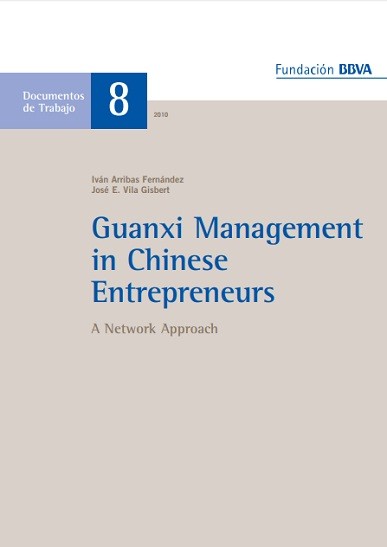
PublicationWorking Papers
Guanxi Management in Chinese Entrepreneurs
A Network Approach
This working paper analyzes the role played by two dimensions of entrepreneurs’ private social capital in the performance of an entrepreneurial venture: local size and degree of preferential linking. To fulfill this objective, we build a bi-dimensional measure of social capital based on network models and a methodology to estimate this measure for any group of entrepreneurs.
Based on a survey of service entrepreneurs who launched their business in the city of Shanghai, we show that social capital or guanxi is relevant for business success. Moreover, we show that roles played by each dimension are quite different. A large local network, i.e. a large set of agents able to advise or support the entrepreneur, increases the chances of survival of the new venture but has no impact to make it go beyond a self-employment business.
To reach this level, entrepreneurs need to generate a high degree of preferential attachment; in other words, they need to generate a social network that allows them to get advice and support from those agents placed in critical positions within Shanghai’s global socio-economic network. This finding has relevant political and managerial implications and generates new questions to be answered in future research.
